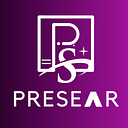Interoperability in EHR Systems: Challenges and Solutions
Electronic Health Record (EHR) systems are transforming the healthcare industry by providing a seamless flow of patient information among different healthcare providers and improving the quality of patient care. Interoperability is an essential feature of EHR systems that ensures that different EHR systems can exchange patient information efficiently and accurately. In this blog, we will discuss the challenges of interoperability in EHR systems and some of the solutions to address them.
Lack of Standards
One of the biggest challenges of interoperability in EHR systems is the lack of standards. Different EHR systems may use different data formats, terminologies, and protocols, making it difficult to exchange patient information among them. Even when standards exist, they may not be universally adopted, leading to interoperability issues.
Data Quality
The quality of data in EHR systems can vary significantly, leading to issues with interoperability. For instance, data may be incomplete, inaccurate, or inconsistent across different systems. This can lead to patient safety risks and other issues.
Data Security
Interoperability can create security and privacy risks, especially when sensitive patient data is shared across different systems. Healthcare organizations need to ensure that data is encrypted, authenticated, and authorized to prevent unauthorized access and data breaches.
Cost and Complexity
Interoperability requires significant investments in technology and infrastructure, making it difficult for smaller healthcare organizations to implement. Moreover, the process of integrating different systems and data sources can be complex and time-consuming.
Solutions for Interoperability in EHR Systems
Achieving interoperability in EHR systems can be challenging due to the lack of standards, data quality issues, data security concerns, and cost and complexity barriers, however, there might be few solutions.
Adopt Standards
The adoption of common standards is essential for interoperability in EHR systems. Healthcare organizations need to implement standardized terminologies, data formats, and protocols to ensure that different systems can communicate effectively. The adoption of Health Level Seven International (HL7) standards, which define messaging, data exchange, and interoperability between different healthcare systems, can help ensure that EHR systems can share data accurately and efficiently.
Implement Data Governance
Effective data governance is critical for ensuring the quality of data in EHR systems. This includes implementing data quality checks, maintaining data accuracy, and establishing data standards and policies. By ensuring that data is complete, accurate, and consistent, healthcare organizations can improve the quality of patient care and ensure that data is exchanged effectively among different EHR systems.
Address Data Security and Privacy
Interoperability can create security and privacy risks, especially when sensitive patient data is shared across different systems. Healthcare organizations need to ensure that patient data is secured, encrypted, and authorized when it is exchanged among different systems. This includes implementing role-based access controls, auditing, and monitoring of data access. The use of secure communication protocols such as Transport Layer Security (TLS) can also help ensure that data is exchanged securely.
Encourage Vendor Collaboration
Collaboration among EHR vendors is essential for achieving interoperability. Vendors need to work together to develop standards and protocols that enable their systems to exchange patient information seamlessly. The development of common APIs and data exchange protocols can help ensure that EHR systems can communicate effectively and securely.
Leverage Application Programming Interfaces (APIs)
APIs can facilitate interoperability by enabling different EHR systems to exchange data in a secure and standardized way. APIs can provide a common interface for accessing data across different systems, making it easier to integrate EHR systems. The use of APIs can help reduce the cost and complexity of interoperability by providing a standardized approach to data exchange.
Interoperability is essential for EHR systems to achieve their full potential in improving patient outcomes and reducing healthcare costs. Addressing the challenges of interoperability requires a coordinated effort from healthcare organizations, EHR vendors, and policymakers. By adopting common standards, implementing effective data governance, ensuring data security and privacy, promoting vendor collaboration, and leveraging APIs, healthcare organizations can overcome interoperability challenges and achieve seamless data exchange among different EHR systems.
How to contact us?
- Visit our website — Our website should have a “Contact Us” page with our contact information.
- Look for contact information — Check our website for contact information such as email addresses, phone numbers, and physical addresses.
- Email or Call — Depending on the type of support you need, you can either email us or call our support team. Our contact information should be listed on our website.
- Social Media — You can also reach out to us via our social media pages such as Facebook, Twitter, or LinkedIn.
- Live Chat — We may have live chat support on our website, which can be a convenient way to get in touch with us quickly.
- Submit a Support Ticket — If you have a specific technical issue, you can submit a support ticket via our website.
Email: support@presear.com
Whatsapp: 7008187611
